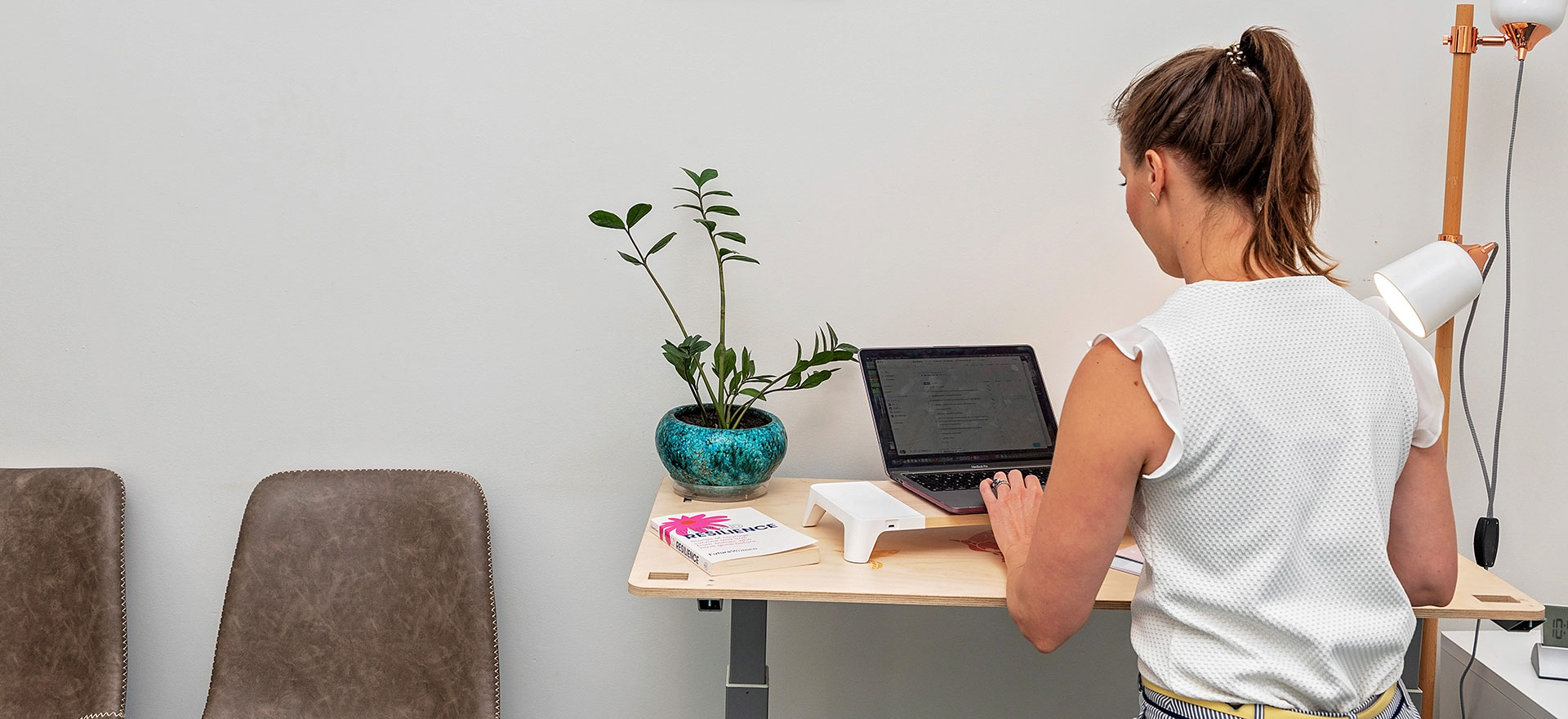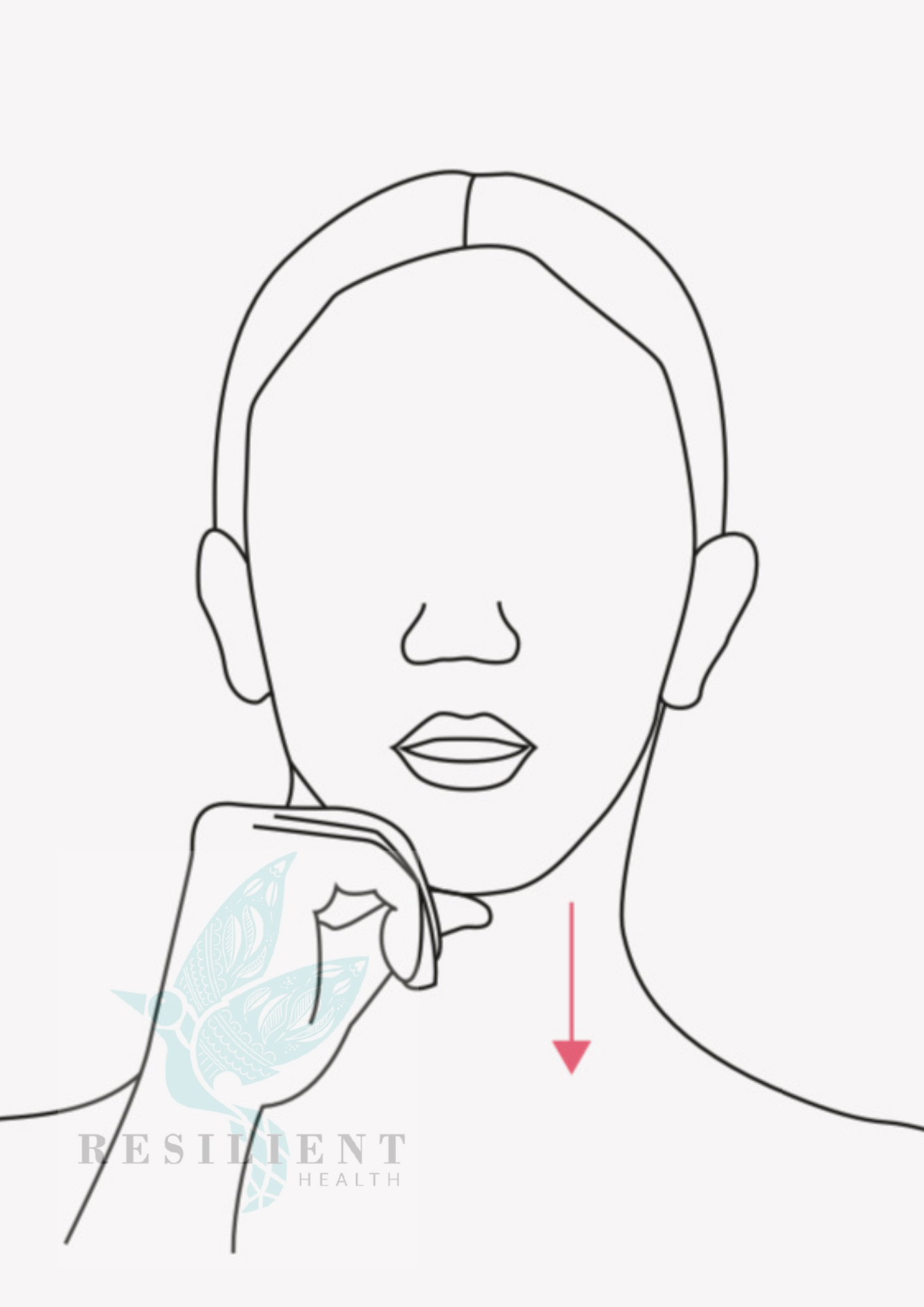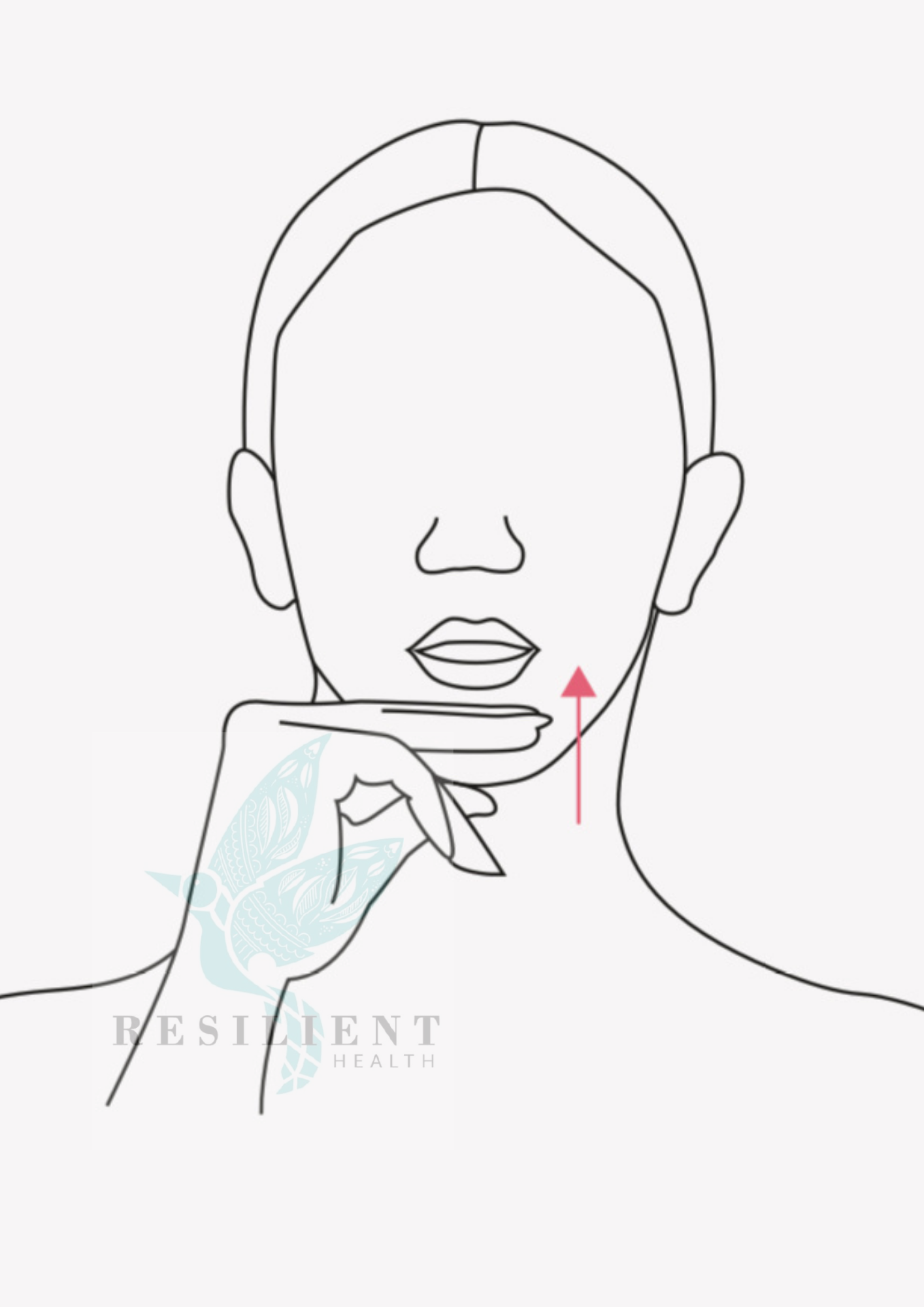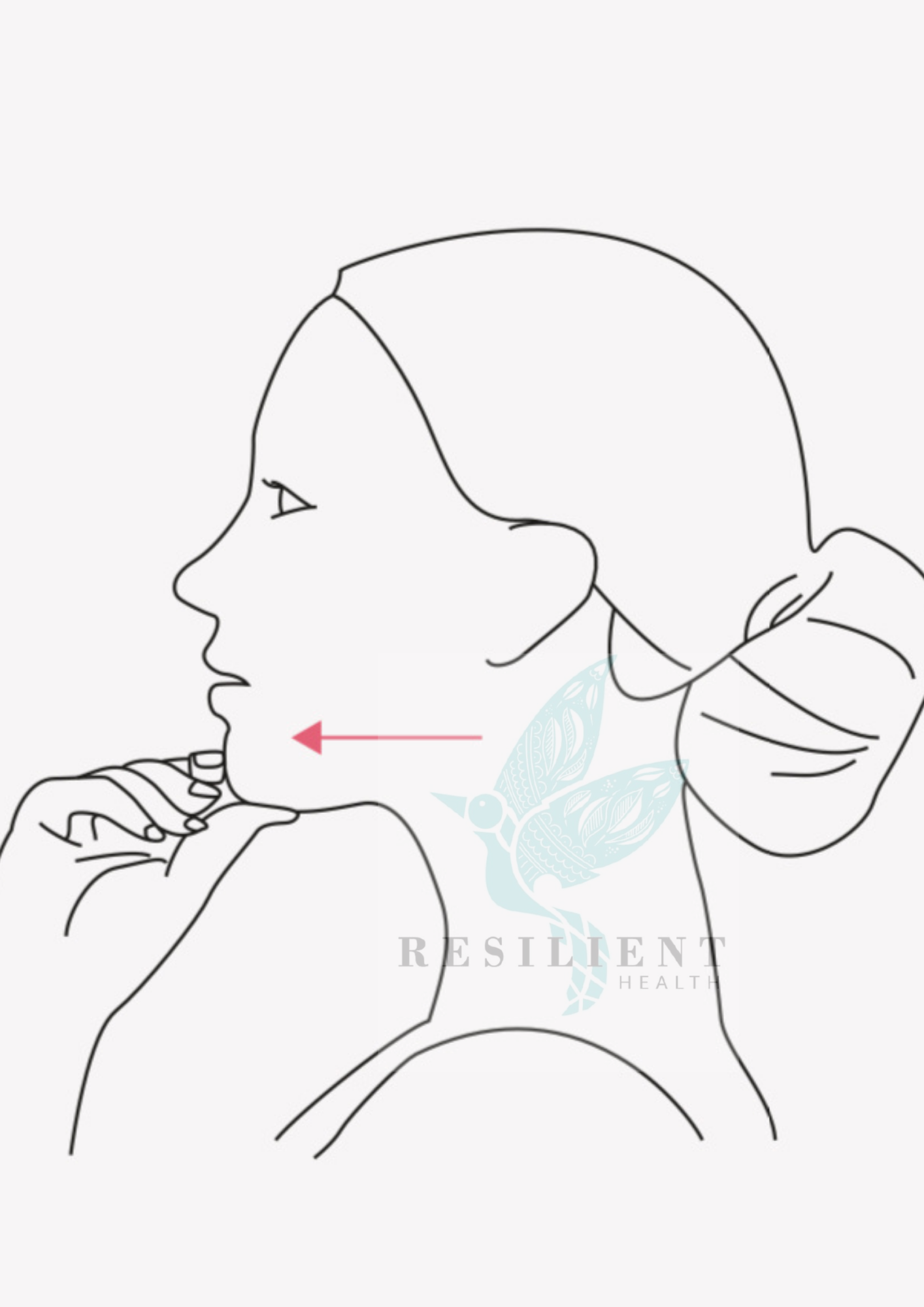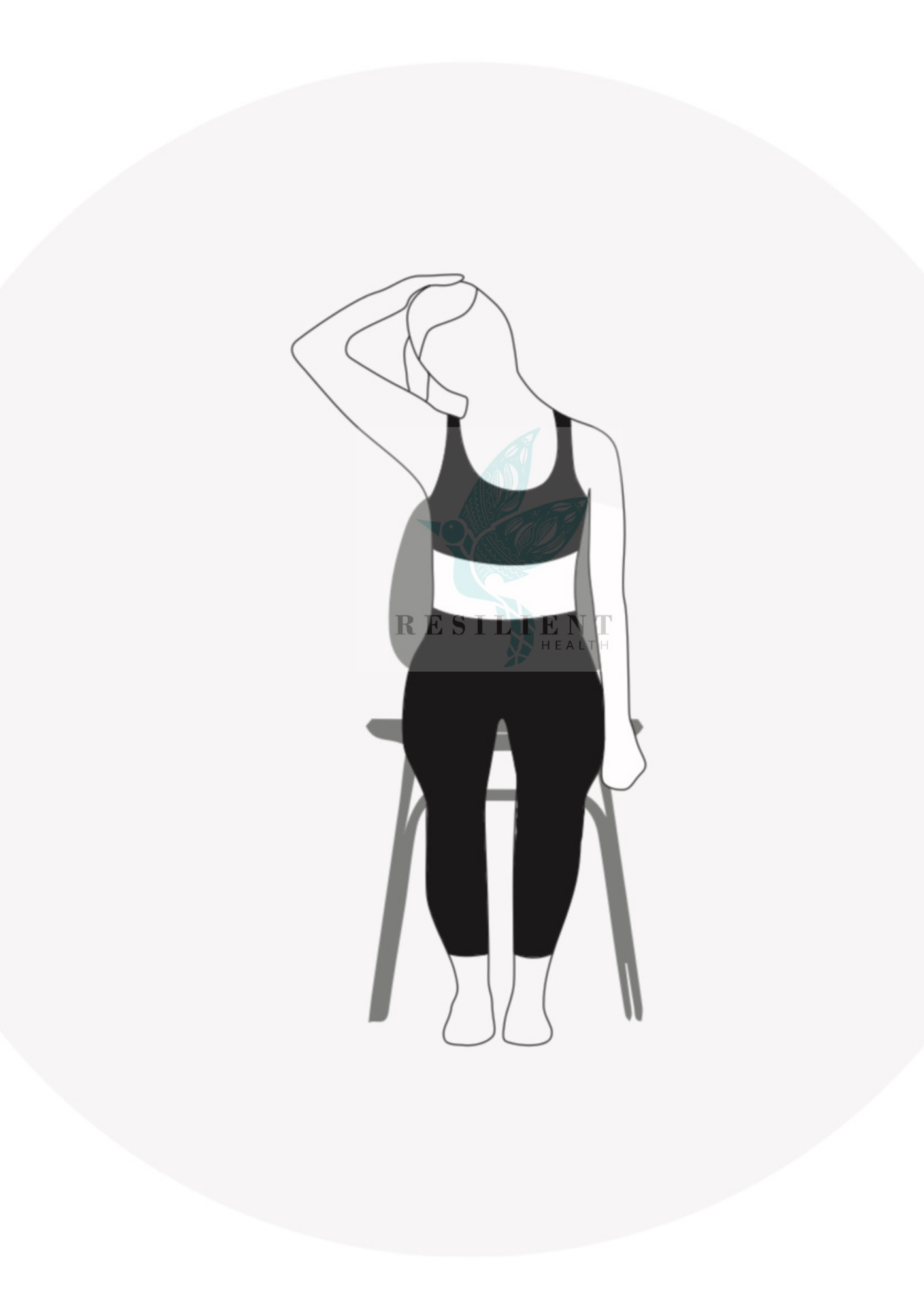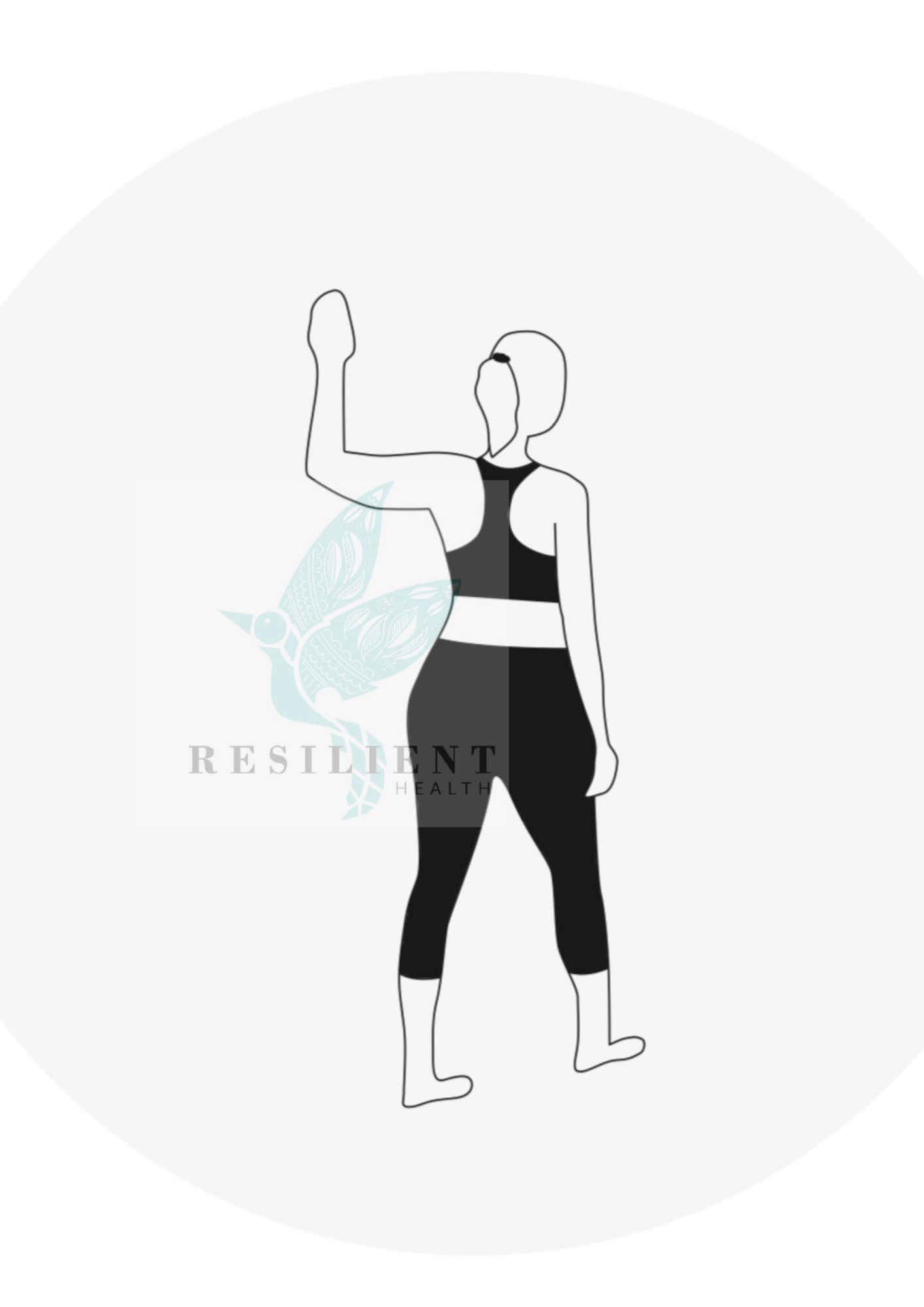Three things to settle your Jaw
Home tricks to troubleshoot Resiliently! Written by Dr Courtnay Wood (Osteopath)
Temporomandibular joint (TMJ, aka “jaw”) disorder is an all-encompassing term for pain and/or dysfunction of the jaw and surrounding muscles. Usually as a result of overuse, weakness or postural compensations the jaw can become painful or click, create headache or reduce movement of the head and neck.
Three things you can do at home to help settle your TMJ include:
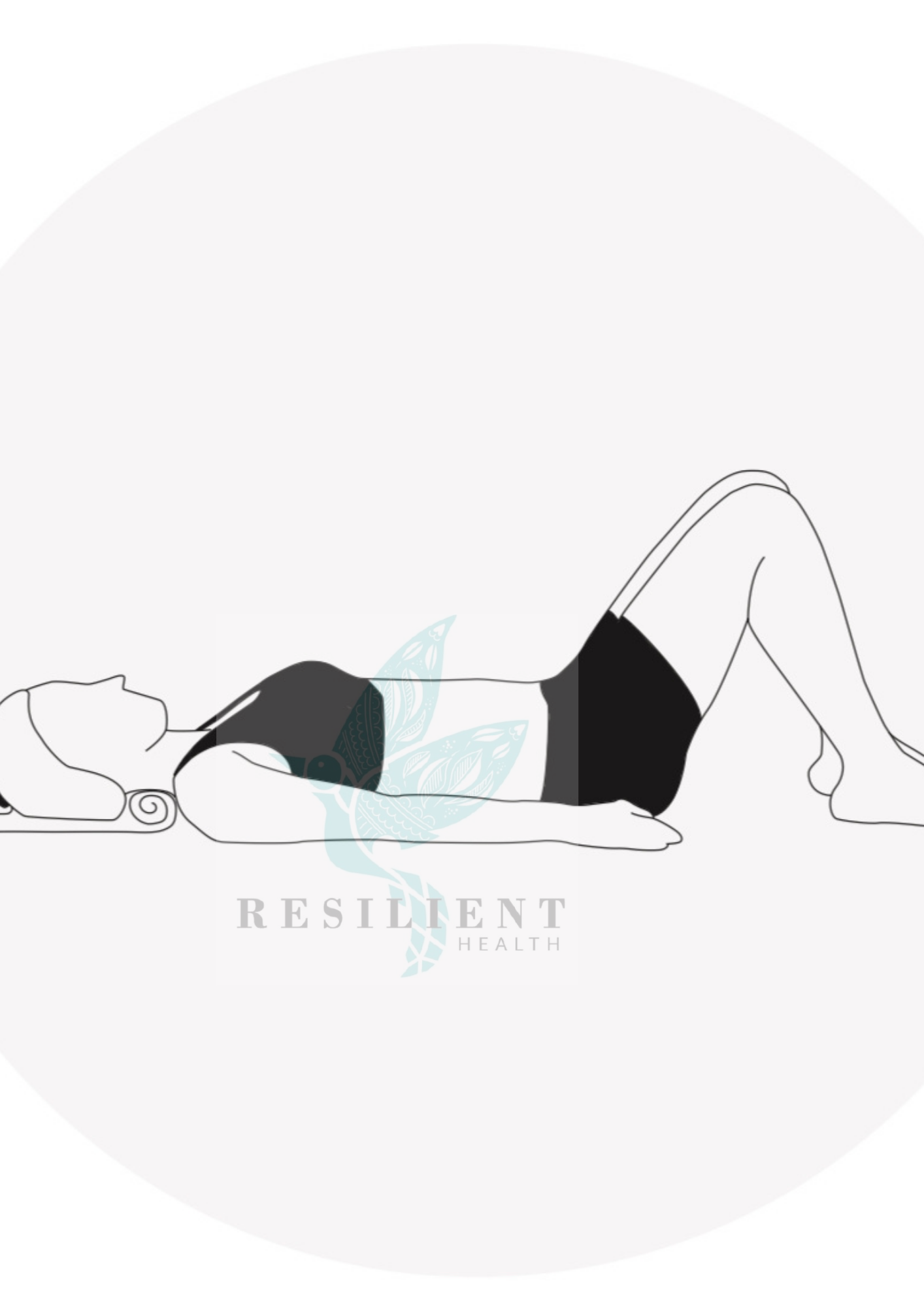
1. Lay on your back with a small rolled up towel under the base of your skull
2. Gently press the base of your skull into the pillow, tucking your chin into your neck
3. Imagine lengthening through the back of your neck as you do this
4. Flattening your tongue along the top of your palate enhances the activation of these muscles
Active resisted range of motion
a. Resisted mouth opening
1. Place your thumb under your chin
2. Slowly open your mouth while using your thumb to gently push against your chin to create some resistance
b. Resisted mouth closing
1. Open your mouth slightly, place your index finger horizontally along the top of your chin between your chin and lower lip
2. Slowly close your mouth while using your index finger to gently push against your chin
c. Resisted chin protrusion
1. Open your mouth slightly
2. Place 2 fingers on your chin
3. Gently push your chin forward while resisting with your fingers
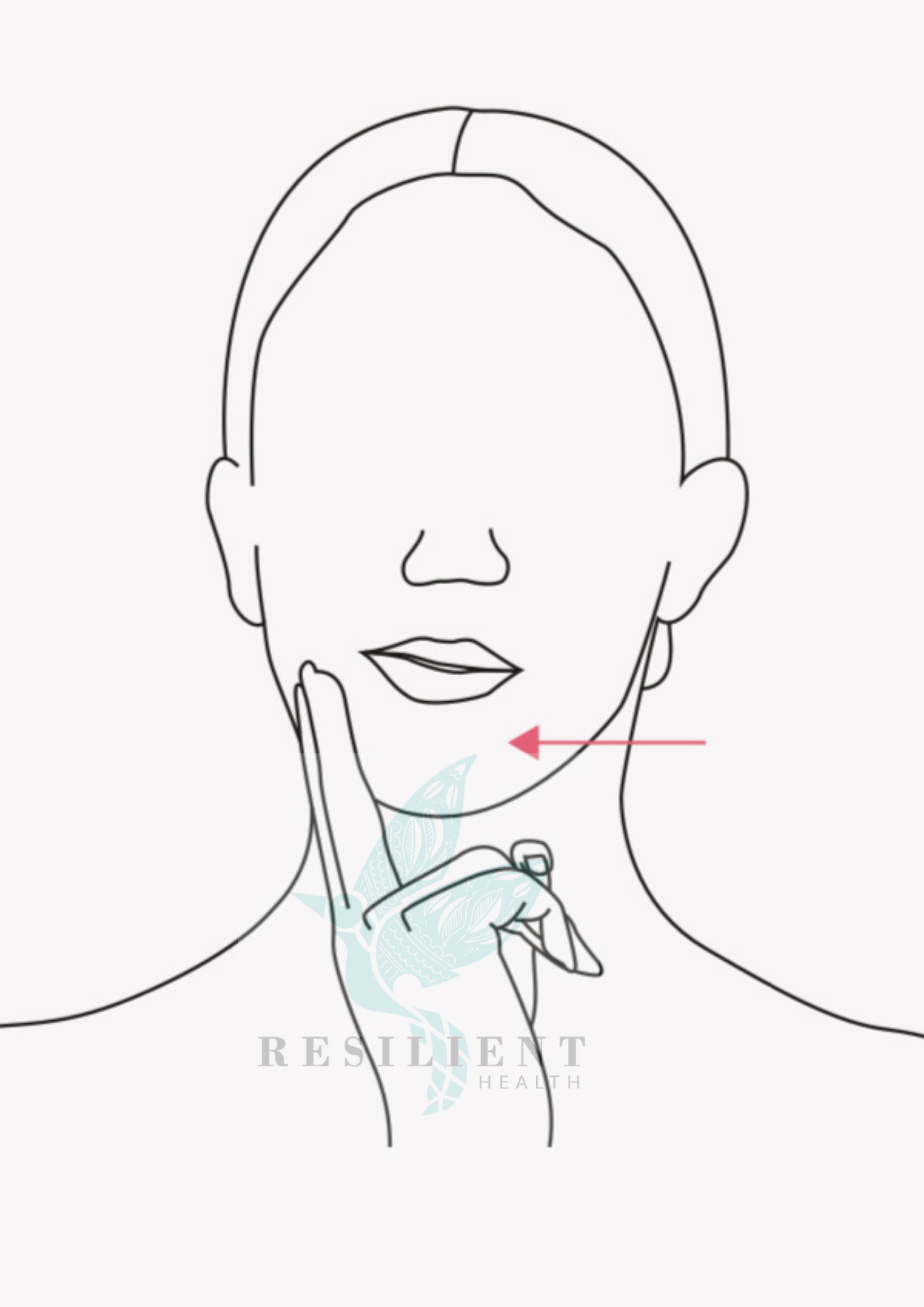
1. Slightly open your mouth
2. Place the palm of your hand on the side of your face
3. Gently push your jaw into your palm while resisting
4. Repeat on the other side
Stretching connecting muscle groups
a. Upper trap stretch
1. Seated
2. Place one hand behind your back and reach the other one over your head to hold at your opposite ear
3. Gently pull your head to the side, away from the hand behind your back
4. Feel the stretch along the top of your shoulder and into your neck
b. Pec stretch
1. Place your bent elbow against the door frame at a 90º angle, in line with your shoulder
2. Step forward with your opposite leg through the door frame and twist your body away to feel a stretch through the front of your chest.
c. Sternocleidomastoid (SCM) stretch (see our instagram for this one!)
1. Seated
2. Place one hand on your collar bone to anchor the bone
3. Gently pull your head to the side, away from the hand on the collar bone
4. Feel the stretch along the front/side of your neck.
*You can make this a more dynamic stretch by rotating your chin to the opposite shoulder and back
See you in the clinic!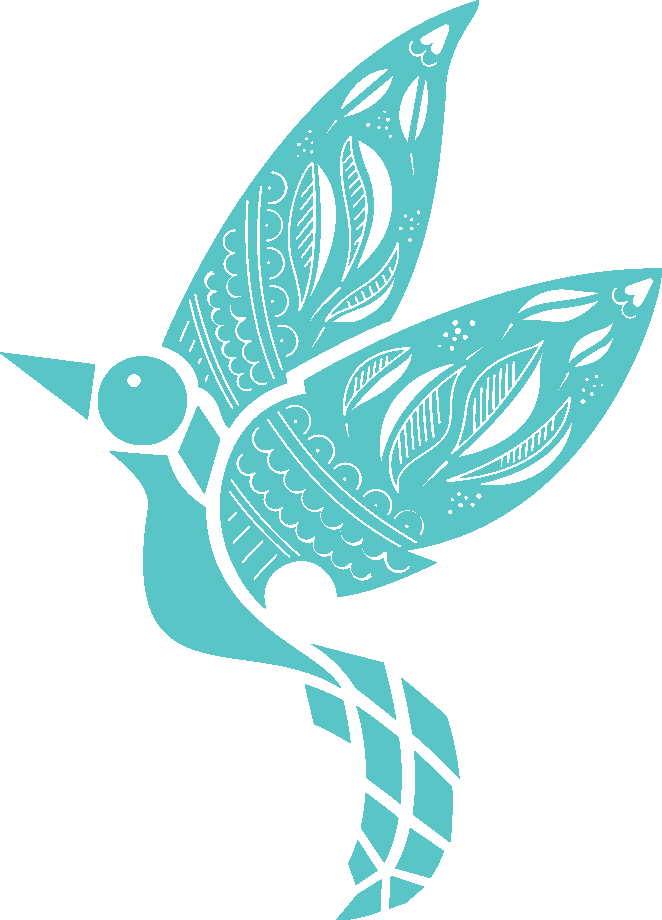
The Resilient Health Team
*Sketched images commissioned from @thejaquesstudio
Other Blogs you might also like:
PILLOW TALK https://www.resilienthealth.co/blog/37-pillow-talk-p
UPPER-BACK STIFFNESS IS A PAIN IN THE NECK! https://www.resilienthealth.co/blog/33-upper-back-stiffness-is-a-pain-in-the-neck
HEADACHES: THE WHY AND WHAT YOU CAN DO ABOUT THEM! https://www.resilienthealth.co/blog/41-headaches-the-why-and-what-you-can-do-about-them
ANTIFRAGILE HACKS FOR YOUR POSTURE (PART 2)! https://www.resilienthealth.co/blog/39-antifragile-hacks-for-your-posture-part-2
